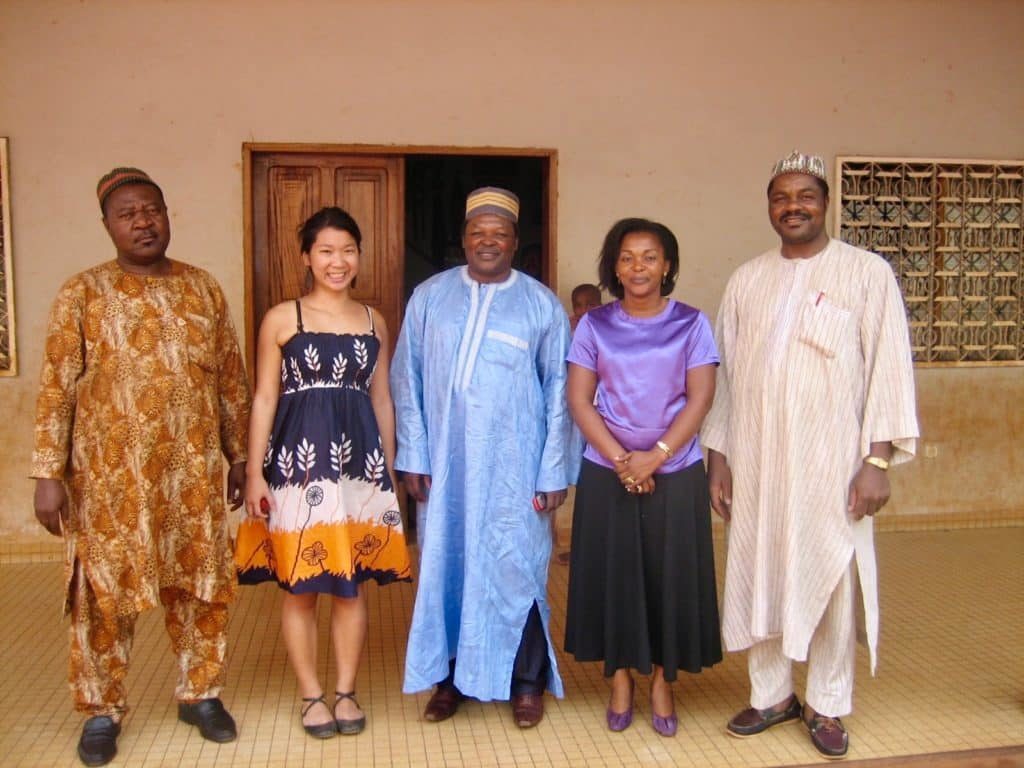After nearly two years in Cameroon, there are some things that I still don’t understand about the culture, and I likely will never understand. The traditioanl chiefs that is prevalent here in the West region of Cameroon is one of such things.
Yesterday, Théo and I met with the chief of Batié who had arranged a meeting with all the chiefs of the villages who are participants of the Books For Cameroon project.
I have not had the best of experience with these traditional chiefs in Cameroon. When I first arrived, I visited my chief to do protocol – informing him of my arrival and such. I remember arriving at his house and waited for at least an hour. Reason? he was sleeping. My counterpart who brought me just kept saying, “well that’s just how it is.”
My thought was, “then why do you people put up with it?!” I thought perhaps over the next two years I would understand this culture better. Well, I haven’t.
The meeting yesterday consisted of 9 chiefs. I explained the origin of the project, and our expectations of their roles in following up with these libraries. It’s important to have someone in the community to follow up on the project because the principals of public schools are appointed by the Minister of Education. Personnel thus gets changed around at moments’ notice, and for no rhyme or reason. That’s the Cameroonian government for you.
Yet to be perfectly honest, I have my share of doubts on what these chiefs are actually going to do to ensure smooth follow-up. Nevertheless, it’s important, and Théo, the Cameroonian from the local NGO whom I’m working with, thinks it’s very necessary.
So, the meeting was scheduled at noon. We started roughly around 1pm. But only 3 chiefs were present. We continued on. For the next 3 hours, I repeated my short speech at least 3 times because more chiefs were showing up at different time.
Perhaps it’s the upbringing in a democratic society, but I find the deference that people have to these chiefs to be extremely obnoxious. Yes it’s a sign of respect, but WHY? What did these people ever do to earn the respect? Oh, they were born into the right family.
While the chiefs that were present at the meeting were all nice enough guys, I began thinking on how this kind of traditions prevents development of a country. There was a time in history that monarchy was prevalent in many countries around the world. But there is also a reason why almost all of them have been abolished.
The power structure in these villages that still have traditional chiefs makes getting anything accomplished extremely difficult. It took us over a month to finally get this one simple meeting scheduled. Imagine trying to get more things done with them. Adding onto it a corrupt and inefficient government, it’s no wonder progress is slow. Besides, I find it extremely bizarre that in 2010, people still address others with “Your Majesty”. I associate those words with the 18th century.
This all makes me the more glad that I was born and raised in societies where the most respect I need to give anyone is a polite handshake and I never would have to address anyone with such deference.








Provocative post, in a way, and possibly hard to understand for anyone who has not lived in such a society. What is your opinion of British or Japanese royalty, just for comparison’s sake?
Thanks for your comment! I am fairly indifferent with the British or Japanese royalty. I see them as culture icons since they don’t hold any real power. To me, they are much like any celebrity or people who were born into high societies with lots of money.
What bothers me the most about these traditional chiefs is that they still DO hold substantial power that get in the way of getting things done, and therefore hinders progress.
As per the expert (spouse), these chiefs also have many responsibilities and very little means to handle them with. Unlike the “other royalty” we mentioned.